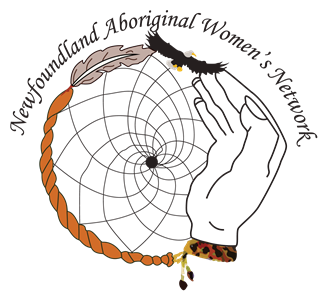
Types & Impacts of Trauma
Types of Trauma
Trauma takes many forms, and understanding them helps tailor support:
Historical Trauma
“Many Indigenous women today are leading the way in the area of healing the wounds of colonization as they grapple with the issues of Residential Schools, missing and murdered Indigenous women and girls, abuse, violence, drug, alcohol and other addictions.”
(Indigenous Feminisms in Canada)
Historical Trauma is a multigenerational trauma experienced by a specific cultural, racial, or ethnic group. It occurs when trauma caused by historical oppression is passed down through generations.
Due to Canada’s history of colonization, Indigenous women face higher rates of violence than non-Aboriginal women. Knowing and understanding how colonization and Residential Schools have impacted family structures is essential in recognizing that it continues to exist and affect Indigenous women. By understanding the intergenerational effects of colonization, we can begin to address current issues and create a better future for young Indigenous girls.
Colonization has affected Indigenous people at multiple levels — health (mental/physical), social, spiritual, economic, and cultural. Practices of colonization included:
War and widespread massacres
Genocide and displacement
Forced labour
Forcible removal of children from their parents
Residential Schools
Environmental destruction
Spread of deadly diseases
Assimilation policies
Attempts to dismantle Indigenous social, cultural, and spiritual practices
Colonization is linked to the poverty and disadvantage experienced by Indigenous people who were displaced from their land, culture, and resources. Unresolved historical trauma will continue to impact individuals, families, and communities until it is addressed mentally, emotionally, physically, and spiritually. Understanding this impact is the first step in seeking new ways to heal.
Acute Trauma
Acute Trauma refers to trauma brought on by a single, isolated event. It is an intense and sudden experience that overwhelms an individual’s ability to cope effectively.
Triggers of acute trauma are unexpected and unpredictable. These experiences can disrupt a person’s sense of safety, stability, and normalcy, leading to profound and immediate impacts on mental health and emotional well-being.
Examples include:
Sudden loss, such as unexpected death of a loved one
Physical assault or rape
Natural disasters (hurricane, flood, wildfire, earthquake)
Mass shootings
Serious car crash or major injury
Complex Trauma
Complex Trauma refers to a series of traumatic events over a long period of time (months or years). It often begins in childhood, but can also develop from prolonged traumatic experiences in adulthood.
Early experiences can leave a deep impact on worldview, sense of self, and relationships. Prolonged exposure to trauma can create an ongoing sense of fear, helplessness, and inability to escape.
Possible causes include:
Sexual abuse or incest
Ongoing physical or emotional abuse
Chronic neglect or abandonment
Medical abuse or trauma
Torture or captivity
Human trafficking
Living in a war zone or area of civil unrest
Impacts of Trauma
Trauma can have far-reaching effects on the body, mind, emotions, relationships, and overall functioning. These impacts may be short-term or persist for years after the event.
Physical
Changes to brain structure and function
Compromised immune system and chronic illness
Sleep problems and fatigue
Increased physical and mental stress
Heightened arousal or hypervigilance
Emotional
Shame, guilt, and feelings of worthlessness
Depression and hopelessness about the future
Anger and resentment
Emotional numbness or detachment
Persistent fear and anxiety
Relational
Loss of trust in others
Difficulty maintaining close relationships
Detachment from family, friends, and community
Fear of authority figures
Developmental
Delayed learning and skill development
Rigid or chaotic behaviours
Difficulty regulating emotions
Delayed development of age-appropriate behaviours
Behavioural
Substance abuse (alcohol/drugs) and gambling
Self-destructive acts or risky behaviour
Aggression and violence towards others
Withdrawal from social activities
Avoidance of reminders of the trauma
Other Symptoms
Nightmares and sleep disturbances
Flashbacks and reliving traumatic events
Intense responses to triggers (emotional, physical, or sensory)
Sense of betrayal or powerlessness
Art by: Serin Alar
Supporting Survivors – BRAVE Approach
A respectful, empowering way to respond to disclosures of trauma:
B – Begin by listening without pressuring for details.
R – Respect confidentiality at all times.
A – Ask what support looks like to them.
V – Validate their experience and affirm it’s not their fault.
E – Empathize with their unique healing process.
Post-Traumatic Stress Disorder (PTSD)
PTSD can develop after experiencing or witnessing trauma. Symptoms may appear soon after or years later.
Common triggers: Combat, abuse, assault, disasters, life-threatening diagnoses.
Four symptom categories:
Intrusive memories: Flashbacks, distressing dreams, vivid recall.
Avoidance: Steering clear of places, people, or thoughts related to the trauma.
Negative mood or thought changes: Hopelessness, detachment, distorted beliefs about self or others.
Physical/emotional reactivity: Startle response, irritability, difficulty sleeping, self-destructive behaviour.
PTSD can disrupt daily functioning, relationships, and sense of safety—but with trauma-informed care, healing is possible.



